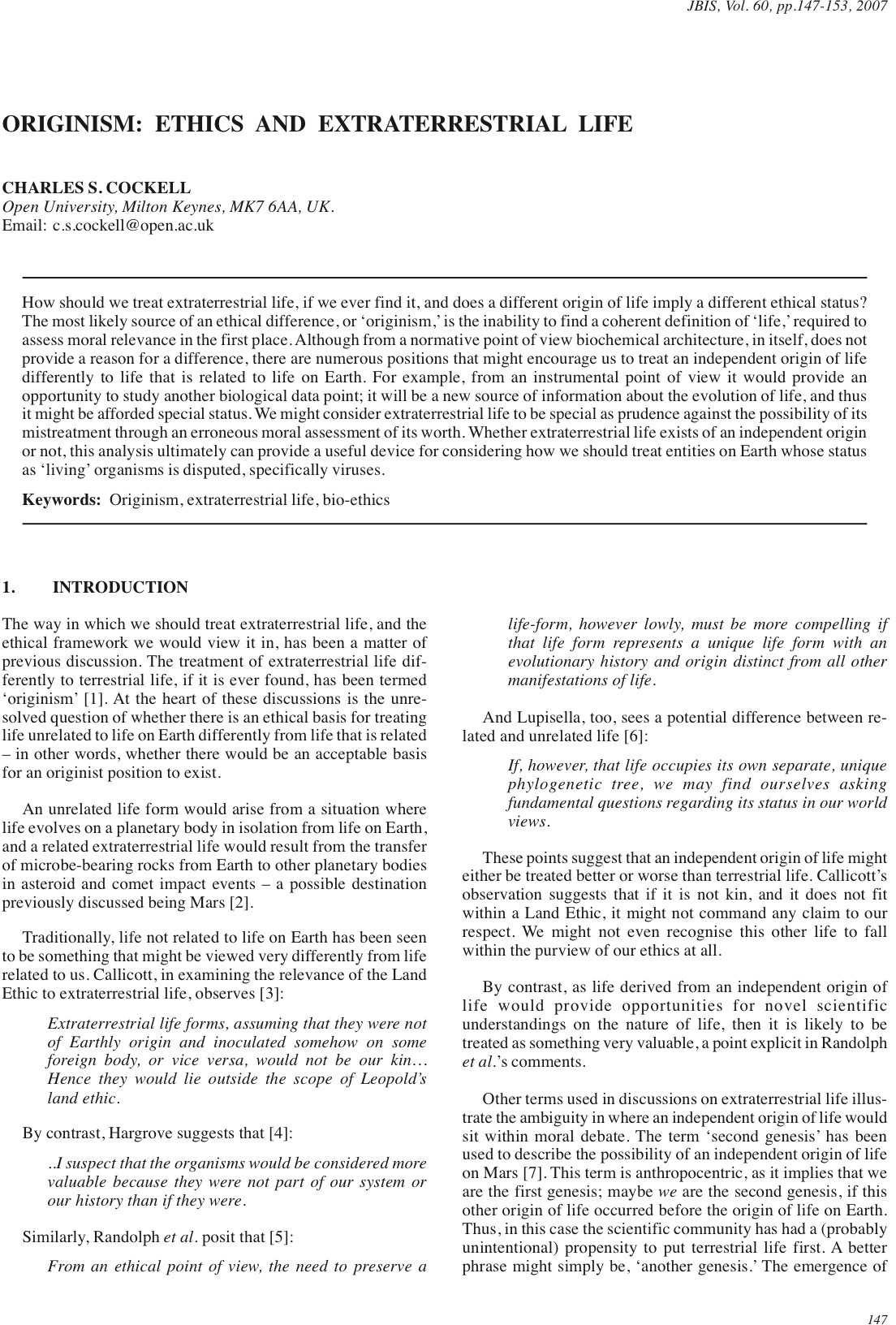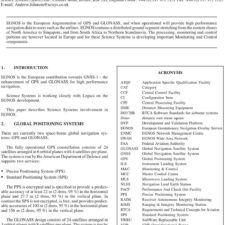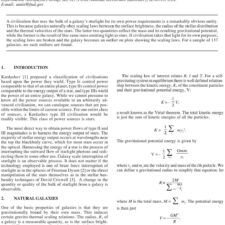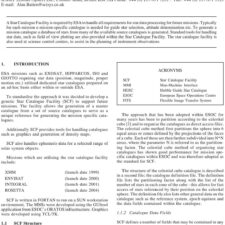Originism – Ethics and Extraterrestrial Life
£5.00
C.S. Cockell (2007), JBIS, 60, 147-153
Refcode: 2007.60.147
Abstract:
How should we treat extraterrestrial life, if we ever find it, and does a different origin of life imply a different ethical status? The most likely source of an ethical difference, or `originism,’ is the inability to find a coherent definition of `life,’ required to assess moral relevance in the first place. Although from a normative point of view biochemical architecture, in itself, does not provide a reason for a difference, there are numerous positions that might encourage us to treat an independent origin of life differently to life that is related to life on Earth. For example, from an instrumental point of view it would provide an opportunity to study another biological data point; it will be a new source of information about the evolution of life, and thus it might be afforded special status. We might consider extraterrestrial life to be special as prudence against the possibility of its mistreatment through an erroneous moral assessment of its worth. Whether extraterrestrial life exists of an independent origin or not, this analysis ultimately can provide a useful device for considering how we should treat entities on Earth whose status as `living’ organisms is disputed, specifically viruses.





